Filter by

A Translation of Lao-tzu’s Tao Te Ching and Wang Pi’s Commentary
During the Spring-Autumn period (722–420 BCE) and the time of the Warring States (480–222 CE), China was in great turmoil. Intellectuals and social reformers sifted through their wisdom and knowledge of China’s experiences up to then, attempting to find a solution to their situation.The Tao Te Ching, one of the foremost products of the era, is a metaphysical book, a source of the highest …
- Edition
- -
- ISBN/ISSN
- 9780472901388
- Collation
- -
- Series Title
- -
- Call Number
- 301 LIN t
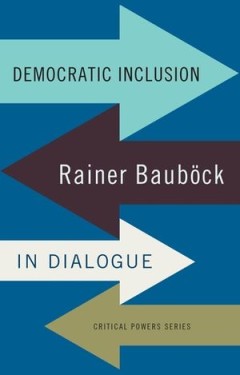
Democratic inclusion Rainer Bauböck in dialogue
This book addresses the major theoretical and practical issues of the forms of citizenship and access to citizenship in different types of polity, and the specification and justification of rights of non-citizen immigrants as well as non-resident citizens. It also addresses the conditions under which norms governing citizenship can legitimately vary. The book discusses the principles of includi…
- Edition
- -
- ISBN/ISSN
- 9781526105257
- Collation
- -
- Series Title
- -
- Call Number
- -
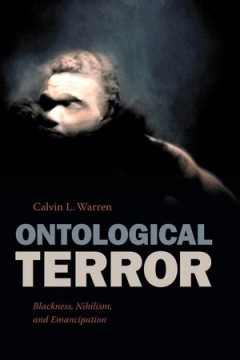
Ontological Terror Blackness, Nihilism and Emancipation
In Ontological Terror Calvin L. Warren intervenes in Afro-pessimism, Heideggerian metaphysics, and black humanist philosophy by positing that the "Negro question" is intimately imbricated with questions of Being. Warren uses the figure of the antebellum free black as a philosophical paradigm for thinking through the tensions between blackness and Being. He illustrates how blacks embody a metaph…
- Edition
- -
- ISBN/ISSN
- 9780822370727
- Collation
- -
- Series Title
- -
- Call Number
- -
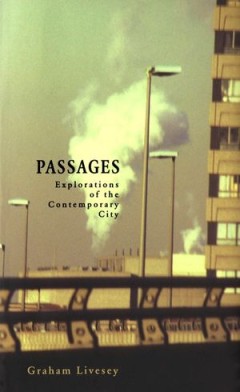
Passages Explorations of the Contemporary City
Informed by the work of writers such as Henri Lefebvre, Paul Ricoeur and Michel de Certeau, this collection of essays examines through multiple lenses eight topics related to the contemporary urban domain. The author employs powerful geographic and literary concepts such as space, narrative, and metaphor to interpret the often-bewildering complexity of the post-modern city. Recalling key aspect…
- Edition
- -
- ISBN/ISSN
- 9781552386750
- Collation
- -
- Series Title
- -
- Call Number
- -
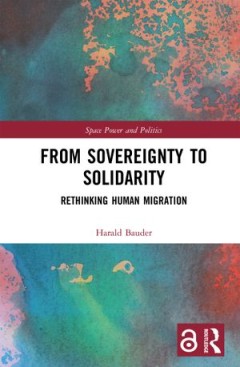
From Sovereignty to Solidarity Rethinking Human Migration
From Sovereignty to Solidarity seeks to re-imagine human mobility in ways that are de-linked from national sovereignty. Using examples from around the world, the author examines contemporary practices of solidarity to illustrate what such a conceptualization of human mobility looks like. He suggests that urban and local scales, rather than the national scale, is a better way to frame human migr…
- Edition
- -
- ISBN/ISSN
- -
- Collation
- -
- Series Title
- -
- Call Number
- -
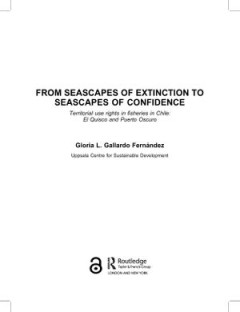
From Seascapes of Extinction to Seascapes of Confidence
From Seascapes of extinction to seascapes of confidence. Territorial Use Rights in Fisheries in Chile: El Quisco and Puerto Oscuro by Gloria Gallardo Fernandés is an important contribution to our understanding of the multifaceted challenges underlying sustainable solutions to ecological fisheries, the book describes how, in Chile, indiscriminate harvest of the edible shellfish Concholepas co…
- Edition
- -
- ISBN/ISSN
- 9781315159829
- Collation
- -
- Series Title
- -
- Call Number
- -
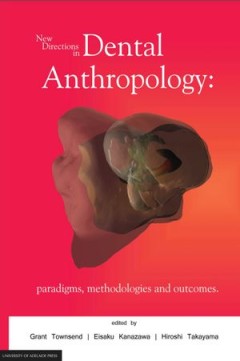
New Directions in Dental Anthropology: Paradigms, Methodologies and Uutcomes
This book contains papers arising from a symposium held during a combined meeting of The International Union of Anthropological and Ethnological Sciences (IUAES), The Australian Anthropological Society (AAS) and The Association of Social Anthropologists of Aotearoa New Zealand at the University of Western Australia from July 5-8th, 2011. It follows on from a recently published Special Issue Sup…
- Edition
- -
- ISBN/ISSN
- 9780987171870
- Collation
- -
- Series Title
- -
- Call Number
- 301 NEW n
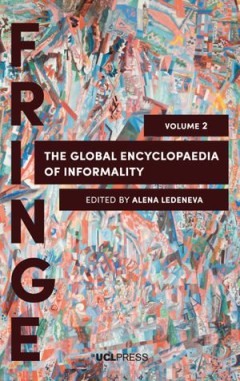
The Global Encyclopaedia of informality, Volume 2
Alena Ledeneva invites you on a voyage of discovery to explore society’s open secrets, unwritten rules and know-how practices. Broadly defined as ‘ways of getting things done’, these invisible yet powerful informal practices tend to escape articulation in official discourse. They include emotion-driven exchanges of gifts or favours and tributes for services, interest-driven know-how (from…
- Edition
- -
- ISBN/ISSN
- 9781787351899
- Collation
- -
- Series Title
- -
- Call Number
- 320.01 GLO g
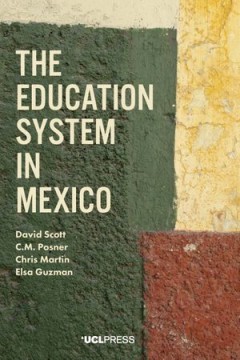
The Education System in Mexico
Over the last three decades, a significant amount of research has sought to relate educational institutions, policies, practices and reforms to social structures and agencies. A number of models have been developed that have become the basis for attempting to understand the complex relation between education and society. At the same time, national and international bodies tasked with improving …
- Edition
- -
- ISBN/ISSN
- 9781787350724
- Collation
- -
- Series Title
- -
- Call Number
- 370.1 POS e
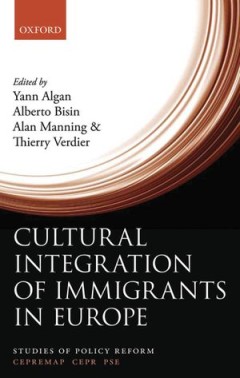
Cultural Integration of Immigrants in Europe
The concepts of cultural diversity and cultural identity are at the forefront of the political debate in many western societies. In Europe, the discussion is stimulated by the political pressures associated with immigration flows, which are increasing in many European countries. The imperatives that current immigration trends impose on European democracies bring to light a number of issues that…
- Edition
- -
- ISBN/ISSN
- 9780199660094
- Collation
- -
- Series Title
- -
- Call Number
- 572.9 BIS c
 Computer Science, Information & General Works
Computer Science, Information & General Works  Philosophy & Psychology
Philosophy & Psychology  Religion
Religion  Social Sciences
Social Sciences  Language
Language  Pure Science
Pure Science  Applied Sciences
Applied Sciences  Art & Recreation
Art & Recreation  Literature
Literature  History & Geography
History & Geography